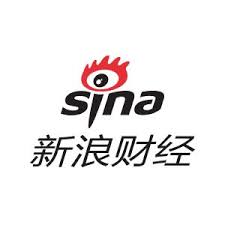Latest Global Top 100 AI Applications Ranking: ChatGPT Tops the List, Google Rapidly Catches Up in Second Place, Alibaba Quark Surges to Ninth
Special Topic: Focus on AI
For stock trading, refer to the Jin Qilin analyst research report—authoritative, professional, timely, and comprehensive, helping you uncover potential thematic opportunities!
(Source: NetEase Technology)
The global landscape of consumer-level AI applications is becoming increasingly stable, but competition among the top players is growing fiercer.
The latest global Top 100 Generative AI Consumer Applications ranking shows that ChatGPT continues to hold the top spot, but Google has significantly narrowed the gap through its multi-product matrix strategy. Its general assistant Gemini has achieved about 12% of ChatGPT's web traffic, ranking second.
Chinese AI products are performing strongly in the global market. Quark AI Assistant, under Alibaba, has jumped to 9th place on the web, and ByteDance's Doubao ranks 12th. Data from the ranking shows that among the 50 web-based applications, three products mainly serving Chinese users have entered the top 20, and another seven Chinese-developed products are primarily targeting overseas markets.
For the first time, Google occupies four spots on the list with independent domain names, demonstrating the effectiveness of its AI product matrix layout. In addition to Gemini, the developer-oriented AI Studio entered the top 10 for the first time, the academic research tool NotebookLM ranked 13th, and the AI experimental platform Google Labs ranked 39th.
The competition in the mobile sector is even more intense, with Gemini's monthly active users reaching nearly half that of ChatGPT. Grok, the assistant on the X platform, performed impressively, rapidly accumulating over 20 million monthly active users from zero at the end of 2024, ranking 23rd on mobile. Chinese-developed mobile applications account for nearly half of the list, with an estimated 22 out of 50 mobile apps developed by Chinese teams.
Google's multi-product matrix debuts independently on the list
Through a domain separation strategy, Google has, for the first time, enabled its AI products to be independently tracked and ranked. Gemini ranks second on the web, with traffic reaching about 12% of ChatGPT's, and its monthly active users on mobile are nearly half of ChatGPT's, showing strong growth momentum.
AI Studio, a sandbox platform for developers, has successfully entered the top 10. This platform supports users in building Gemini multimodal model applications. After becoming independent from Google Labs, NotebookLM ranked 13th. This academic research tool has grown steadily over the past year, with only a slight decline during the summer academic user attrition period.
Google Labs ranked 39th, hosting multiple AI experimental projects, including the video model Veo 3 and the clothing try-on app Doppl. Data shows that after the release of Veo 3, Google Labs' traffic surged by over 13%, marking the largest single-month increase in the past year.
The globalization of Chinese AI products has significantly improved
Among products mainly serving Chinese users, Alibaba's Quark ranks 9th, ByteDance's Doubao is 12th, and Moonshot AI's Kimi is 17th, with over 75% of their traffic coming from China.
More noteworthy is the globalization trend of Chinese-developed products. According to statistics, seven Chinese-developed AI products mainly serve overseas markets, including video generation models like DeepSeek, Hailuo, and Keling, as well as the image generation tool SeaArt.
Chinese products have an even more pronounced advantage on mobile, with an estimated 22 out of 50 mobile applications developed by Chinese teams, but only three mainly serving the Chinese market. Meitu has contributed five applications, and ByteDance has launched four products, demonstrating strong capabilities in mobile AI product development.
General assistant competition heats up
Although ChatGPT maintains its leading position, competitors are quickly closing the gap. Grok on the X platform stands out on mobile, starting from scratch at the end of 2024 and now boasting over 20 million monthly active users. After the release of the new Grok 4 model in July, mobile usage surged by nearly 40%, and the launch of the anime character Ani further boosted user growth.
Meta's AI assistant has grown relatively moderately, with Meta AI ranking only 46th on the web and failing to enter the top 50 on mobile. After its launch at the end of May, the product's growth was slow, and an incident in June where some conversation content appeared in the public information stream further affected user confidence.
DeepSeek saw a significant decline after peaking in February, with web traffic dropping by more than 40% from its peak and mobile usage down by 22%. In contrast, Perplexity has maintained strong growth across all platforms, while Claude continues to grow on the web but has slowed on mobile.
"Ambient programming" becomes a new growth point
AI-assisted programming tools are becoming a new growth area. After only Bolt appeared on the list in March, both Lovable and Replit have successfully entered the main ranking, with Lovable jumping to 22nd place, showing the rapid rise of the AI application generation field.
User retention data shows that this trend is not just a flash in the pan. Consumer Edge credit card panel data shows that the US user group of a leading "ambient programming" platform had a revenue retention rate of over 100% within several months after registration, indicating not only user retention but also an expansion in usage scale.
These platforms have also driven the growth of related infrastructure products. The traffic growth of database service provider Supabase has almost synchronized with that of core ambient programming platforms, with the growth rate in the past nine months significantly faster than in previous years. Websites built and published through Replit and Lovable have contributed considerable traffic to their respective platforms, demonstrating the ecological effect of the platforms.
Disclaimer: The content of this article solely reflects the author's opinion and does not represent the platform in any capacity. This article is not intended to serve as a reference for making investment decisions.
You may also like
Can the 40 billion bitcoin taken away by Qian Zhimin be returned to China?
Our core demand is very clear—to return the assets to their rightful owners, that is, to return them to the Chinese victims.

Bitcoin Surges but Stumbles: Will Crypto Market Recover?
In Brief Bitcoin fails to maintain its position above $93,000 and faces heavy selling pressure. Altcoins experience sharp declines, with some showing mixed performance trends. Shifts in U.S. spot Bitcoin ETF flows highlight cautious investor behavior.

Qubic and Solana: A Technical Breakthrough by Studio Avicenne

